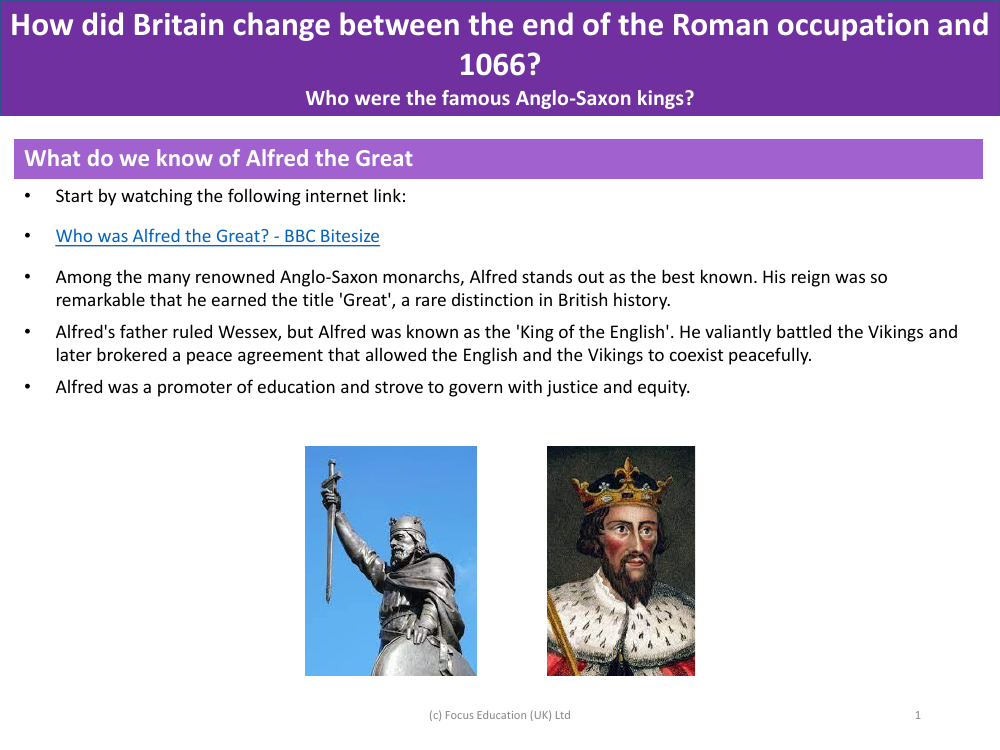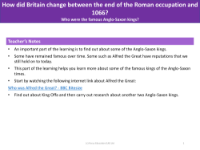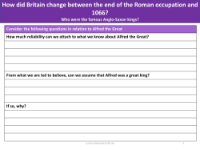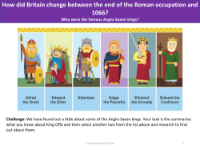Alfred the Great - Info pack

History Resource Description
Alfred the Great is a figure of monumental significance in British history, celebrated for his extraordinary leadership as an Anglo-Saxon monarch. His legacy is such that he was bestowed with the title "Great," an accolade rarely given in British history. Alfred was not just any king; he was the son of the ruler of Wessex and became known as the 'King of the English'. His tenure was marked by fierce battles against the Vikings, culminating in a peace treaty that allowed for a harmonious existence between the English and the Norse invaders. More than just a warrior, Alfred was a champion of learning and justice, advocating for education and striving to rule his kingdom with fairness and wisdom.
Alfred's story is peppered with intriguing anecdotes, such as his journey to Rome at the age of four to meet the Pope, and his triumphant memorisation and recitation of English poetry as a child, which won him a book from his mother. As king, after his brother's death in 871 AD, he took refuge on Athelney island during a Viking onslaught, where he famously had an encounter with a cowherd's wife and her burnt cakes. In governance, Alfred relied on the counsel of the Witan, an assembly of nobles and church leaders. He was a patron of literacy, overseeing the translation of books from Latin to English and initiating the Anglo-Saxon Chronicle to record historical events. To protect his realm, he established fortified towns known as 'burhs' and a navy to repel Viking raids. His military was innovatively structured, allowing soldiers to tend to their farms while remaining combat-ready. Alfred's final resting place is in Winchester, the capital of his kingdom, where he was interred after his death in 899 AD.




